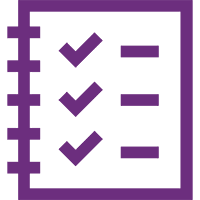Transforming Leaders So Companies Thrive.
Expert Coaches, Custom Strategies, Measurable Outcomes
Arden Coaching clients turn to us for help in transforming their leaders to build stronger teams, better communication, and a thriving company culture. Arden’s expert coaches work one-on-one with executives to produce tangible shifts in their beliefs and behavior over time, using a customized approach that best suits their strengths, challenges, goals, and individual learning style.
We believe that executive coaching should benefit both the executive and the company, and we collaborate with our clients to deliver real results with concrete, measurable outcomes. Our clients report greater effectiveness and productivity, increased awareness and perspective, improved listening and communication skills, stronger relationships, greater confidence, and more effective leadership.

Senior Leaders
Fill Critical Skill Gaps

Discover the Many Benefits of Arden Executive Coaching
Our expert coaches can help leaders:
Improve communication style
Increase emotional intelligence
Better manage priorities
Sharpen strategic thinking skills
Navigate a transition to a new role
Hone their executive presence
Gain powerful team-building tools
Our Executive Coaching Philosophy: Insight + Action = Results
Coach Selection Process
In order to deliver the most value to our clients and their companies, we believe that it’s critical that an executive chooses a coach whose style matches their personality—that’s why we encourage our clients to interview up to three of our coaches to guarantee the best fit.
Diverse, Experienced Coaches
Our diverse, expert coaches deeply understand their clients and we pride ourselves on having an outstandingly diverse team of coaches. Our coaches are trained and certified at the highest level, and they hold thousands of hours of experience working with executives across a wide variety of industries. Each Arden coach has been selected for their dynamic personality and unique background, ensuring richer coaching and more diverse insights.
Real Results
Convenience and Flexibility
The Arden Difference
The Power of the Arden Process

Selection
First things first: we set up an initial conversation to help determine the appropriate program for the executive, as well as set up interviews with the three coaches that are the best fit for their needs and goals. In this stage, we are looking to match the executive’s style with that of the coach to create a coaching relationship that delivers maximum results.

Work the Plan
With feedback from colleagues and a personalized development plan in place, the executive and the coach work through the strategy. They meet regularly to discuss challenges, best practices, and successes, with the coach helping the executive identify and understand their patterns, as well as focus on opportunities for improvement. At the midpoint of the partnership, we once again assess the executive’s progress through a meeting with their supervisor and course-correct, if needed. At the conclusion of the engagement, the executive, supervisor, and coach review the progress and identify any next steps necessary to continue the executive’s growth to ensure a long-term shift in behavior.

Alignment
At the start of each engagement, the coach, the executive, and their supervisor meet to determine the goals of the coaching. Because all of our executive coaching programs are results-driven, it’s critical to set appropriate goals and ensure that the executive, the supervisor, and the company can all realize the benefits of the coaching.

Assessment
When an executive enrolls in a program with the intent to change, measuring the ability and skill level at the outset is a critical first step in setting goals and building a plan to reach them. The coach will select from an array of assessments to select the tools best suited to help the executive gain insight into their unique style and potential areas for growth.
Executive Coaching and Leadership Blogs
She’s Brilliant in Her Field—So Why Doesn’t Her Team Want to Work With Her?
Communication coaching for executives strengthens leadership by refining how they connect, influence, and inspire. One of your top executives is exceptional at what she does. She is a recognized...
Building High-Performance Teams: Strategies for Achieving Optimal Results
By: Julianna Hynes, Ph.D., PCC While some of my executive clients come to coaching to work on more personal goals such as building relationships, exuding executive presence, and communicating...
When Your Next CEO Has the Vision But Lacks the People Skills
Leadership Coaching for Visionary Leaders Who Struggle with People Skills A brilliant strategist. A forward-thinking innovator. A leader who sees what others don’t. The next CEO of your organization...
Rethinking Self-Care and Leadership in the Age of Burnout
By: Fran LaMattina, PhD, MCC It seems that everyone has a new or renewed interest in self-care these days. And for good reason. Many of us have never truly taken it seriously enough to be...
Why Top Executives Need Soft Skills Training
Your Top Execs Are High Performers—But Their People Skills Are Holding Them (And Their Teams) Back High performers don’t like to hear that their lack of soft skills training is getting in the way....
Four Ways to Deepen Workplace Relationships
By: Tom Henschel, Executive Coach/Facilitator Indira’s feedback was clear. When it came to achieving results, she was “a superstar;” when it came to people, she was “remote” and “inaccessible.” She...
Leadership in a Polarized World – A Systems-Based Approach
By: Katherine Poehnert. M.Ed.Psych., PCC Most of us are familiar with the term Emotional Intelligence (EQ) , which is generally defined as consisting of self-awareness and regulation, as well as...
11 Benefits of Working with an Executive Coach
Are you considering working with an executive coach? Leadership isn’t something you master and then move on from. It’s a continuous evolution of growth, adaptation, and self-awareness. Even the most...
Coaching for Executive Presence: Strategies to Build Confidence and Credibility
Leadership isn’t just about making decisions—it’s about influence. And influence begins with executive presence: a blend of confidence, credibility, and communication that commands attention....









